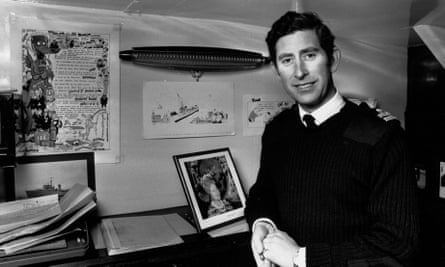Extract from The Guardian
Historian Jenny Hocking and Australian Republican Movement say letter inappropriate

A newly revealed letter, reportedly from Prince Charles to former Australian governor general Sir John Kerr endorsing his decision to dismiss prime minister Gough Whitlam, has been condemned as “inappropriate”.
The letter, which was published by News Corp on Saturday, is dated 27 March 1976 – several months after the constitutional crisis as Kerr was facing a fierce backlash by the Australian public.
“Please don’t lose heart,” the letter reportedly shows Prince Charles, then 27, writing to Kerr. “What you did last year was right and the courageous thing to do – and most Australians seemed to endorse your decision when it came to the point.”
The letter, which has not been independently verified by Guardian Australian, goes on to urge Kerr not to listen to those protesting against the decision to dismiss the Labor prime minister.
“I hope you do not worry too much about these sorts of demonstrations and stupidities… I mention all this just in case you may be getting somewhat depressed or dejected.”
Prof Jenny Hocking, a historian and expert on Whitlam from Monash University whose case in the high court led to the release of the “palace letters”, said the letter confirmed that Prince Charles was approving and supportive of Kerr’s decision.
“It really confirms some of the concerns that have been raised through the release of the palace letters,” she said.
“Far more concerning to me was the confirmation through those earlier palace letters that Charles had spoken at some length to Kerr in September 1975 about matters which included the possibility that he might dismiss the government.
“This was then conveyed to the Queen by Charles, as revealed by her private secretary, Sir Martin Charteris, in a letter to Kerr in October 1975. So Charles’s discussions with Kerr were well known to the Queen as well.
“It’s not the first indication of support for the dismissal from within the royal family. The very, very strong support of Lord Louis Mountbatten was revealed many years ago.”
The royal family is meant to remain politically neutral when it comes to Australia, especially given Prince Charles is set to become the head of state after the Queen abdicates or dies.
“To range over such political matters is most inappropriate,” Hocking said. “These are conversations that ought not to be happening.”
Prince Charles is known to have an affinity for Australia, at one point inquiring about buying property in New South Wales and even had discussions with Kerr about possibly taking over the role of governor general in the 1970s.
The Australian Republican Movement, which campaigns for Australia’s independence from the British monarchy, said the publication of the letter was extremely concerning.
“As has been seen in the UK, Charles is not content to maintain his distance from political matters – in fact, he directly advocates on policy, at times in conflict with the policy of the government of the day,” the ARM’s national director, Sandy Biar, said.
“Unless Australia becomes a republic, this is the kind of behaviour we could expect to see from our future head of state.”
But the Australian Monarchist League said there was no political intent behind Prince Charles’s words.
“When you read the substance [of the letter], you find a young man writing compassionately in the hope that the incessant attacks on the governor general would not cause him to become depressed,” said the group’s national chairman, Philip Benwell.
“However, it would have been better had his royal highness not said ‘what you did last year was right’ as it leads to people to assume that these words represent an involvement in Australian politics, which was clearly not the intention when you read the entirety of the letter.”
But Hocking said other evidence, already in the public domain, showed Prince Charles clearly had a political interest in Australia.
“We know that [Kerr] was having intensely political discussions with Charles and with the Queen through her private secretary, and he ought not to have been … It’s completely improper, so it’s not easy to just dismiss it as merely the concern of a friend.”
Reporting from the Australian newspaper did not include information on where or how the letter was obtained, which Hocking said was important in assessing its significance. Hocking said the letter raised questions concerning transparency and access to historical records.
“Why is this letter from Prince Charles to Kerr not part of the general National Archives collection?” she said. “It raises the question of whether there are other letters between Kerr and members of the royal family elsewhere that should be collected into a single clearly identified collection in our archives.”
Guardian Australia approached Buckingham Palace for comment.
No comments:
Post a Comment